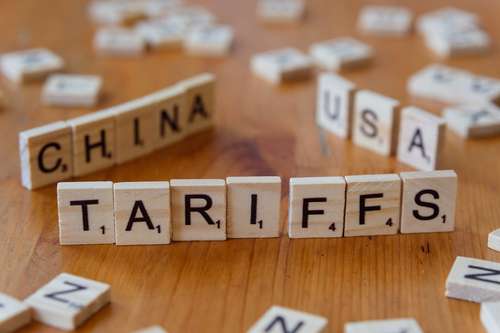Former US President Donald Trump claimed on Monday that FBI agents had "raided" his Mar-a-Lago estate in Florida in what he called an instance of "prosecutorial misconduct."
The FBI failed to comment on whether the search was taking place or what it might be for, and neither did Trump provide any information regarding the purpose of the federal investigators' presence at his residence, adding to the ex-president's legal pressures.
In a statement posted on his Truth Social network, Trump said his "beautiful home, Mar-A-Lago in Palm Beach, Florida, is currently under siege, raided, and occupied by a large group of FBI agents."
"It is prosecutorial misconduct, the weaponization of the Justice System, and an attack by Radical Left Democrats who desperately don't want me to run for President in 2024," said Trump, who was not present during the raid.
Senior Republicans also criticized the raid and charged the Justice Department of overreaching on social media.
The papers and artifacts, which also included letters from former US president Barack Obama, were supposed to be turned over by law at the conclusion of Trump's presidency but ended up at his Mar-a-Lago property.
According to a forthcoming book by New York Times reporter Maggie Haberman, White House personnel frequently found paper wads clogging toilets, prompting them to suspect Trump was attempting to get rid of specific documents.
Hearings in Congress about the January 6 storming of the Capitol by a crowd of Trump supporters and his attempts to rig the election have captivated Washington for weeks.
No one is above the law, Attorney General Merrick Garland has said, and he intends to "hold accountable any person who is legally guilty for seeking to overturn a legitimate election." Despite declining to comment on the rising rumors that Trump could face criminal prosecution.
The real estate tycoon has been making strong indications over the past few months that he will run for president in 2024, but he hasn't yet made an official announcement.
A person with knowledge of the situation said that the search started on Monday morning and continued into the evening.

Legal historians claimed they were unable to recall a recent instance in which the FBI searched a former president's residence. The search signaled a step up in the Justice Department's investigation into certain facets of Mr. Trump's closing days in office, and its effects are expected to be felt in the months leading up to the midterm elections in November.
Removing sensitive materials to an unauthorized location can result in a prison sentence of up to five years for officials. Disqualification from holding federal office, including the presidency, is one of the punishments for violating further rules pertaining to the deletion of official records.
Questions were raised regarding Mr. Trump's compliance with federal law requiring that official papers be given over when a president leaves office when the National Archives retrieved 15 boxes of material from him in January. According to a source familiar with the documents, they also contain correspondence between Mr. Trump and North Korean leader Kim Jong-un and a letter former president Barack Obama wrote to his successor.
The House Committee on Oversight and Reform, which is run by Democrats, launched an investigation in response to this and enquired at the National Archives as to whether any boxes contained sensitive information.
In a letter to Rep. Carolyn B. Maloney, the head of the oversight committee, US Archivist David S. Ferriero stated that NARA had found documents labelled as secret national security information among the boxes.



